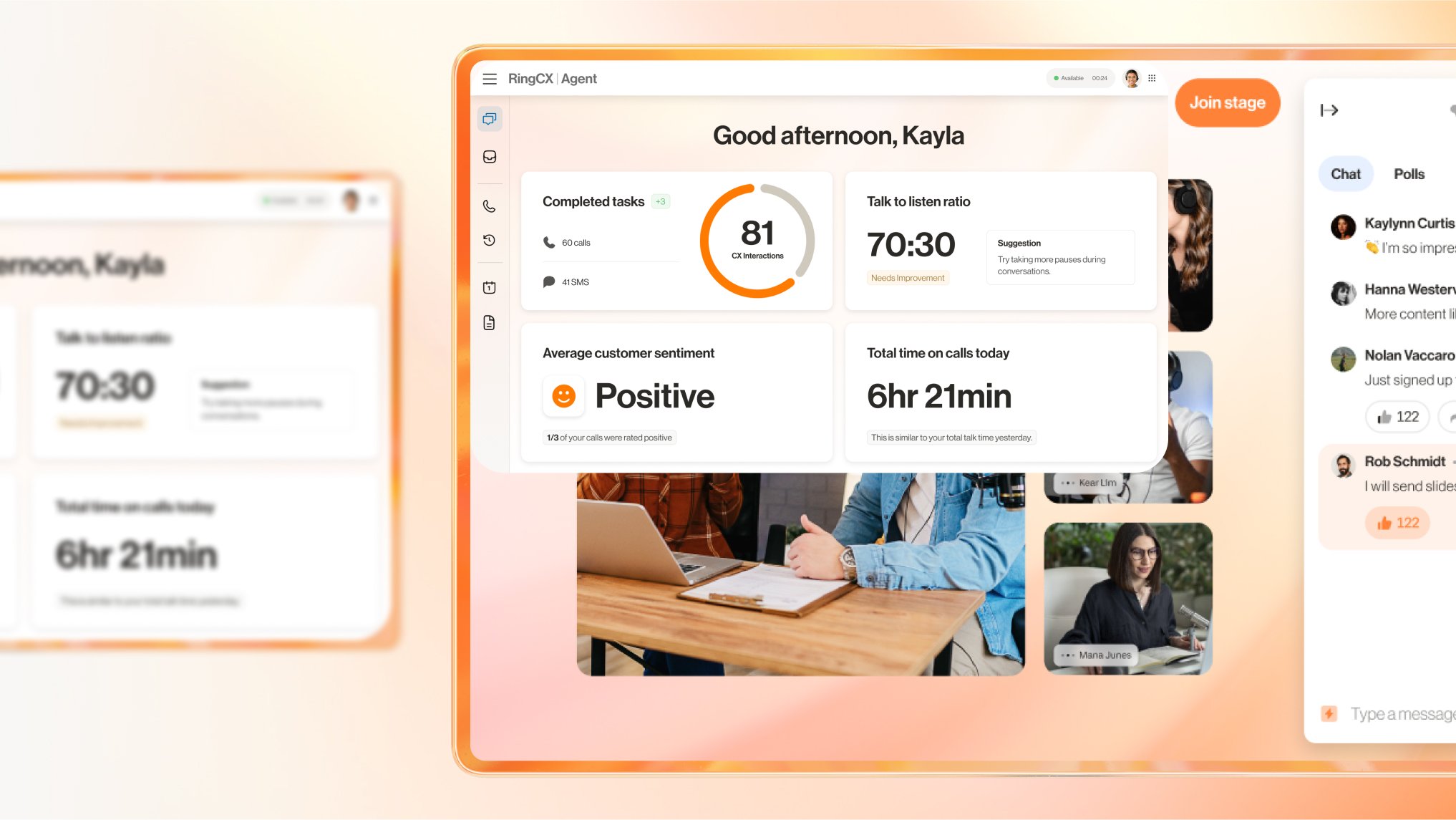- Why start a meal delivery service?
- Current market opportunities
- Key challenges when starting a meal delivery service
- Legal requirements for your new meal delivery business
- Selling considerations for meal delivery businesses
Why start a meal delivery service
Before we dive into how to start a meal delivery service, let’s start with why you might want to consider this business.
First, as we mentioned, meal delivery services are a popular and growing business model. Whether they’re simply too busy or concerned for their health right now, many people are happy to skip the grocery store and have one less thing on their to-do list when it comes to preparing dinner.
Not only that, but by focusing on a delivery model, you’ll have the unique opportunity to serve food to customers without the overhead associated with a traditional restaurant—namely, real estate.
By offering a culinary experience through delivery, you can provide the same great food, and potentially a fun learning experience, without needing to find and furnish a restaurant space.
Plus, if you’re passionate about food, you’ll also have the opportunity to create custom, unique, and ever-changing food experiences—again, without the overhead associated with a storefront or restaurant space.
Whether you’re creating pre-made meals that just need to be heated up, or providing the ingredients and recipe, you have the opportunity to be creative and come up with meals that will appeal to buyers. And, unlike in a restaurant environment, you can mix it up and try new recipes all the time if you want to.
Current market opportunities
A meal delivery isn’t exactly a new idea—pizza places have been doing it since the 1960’s. But there are a few reasons why the timing is right if you’ve been harboring big dreams of meal delivery.
Smart entrepreneurs succeed not only because they have a great idea, but because they have it at the right time. Knowing your market and seeing the opportunity for your business is crucial to your success. If you can’t name your specific niche market and the problem you can solve for customers, you’re unlikely to succeed.
Health-conscious buyers
The growth of health consciousness and special diets represents another opportunity for your meal delivery service to enter the market. More than ever, people are paying particular attention to their diets, eliminating inflammatory foods, and watching what they eat.
Appeal to this by clearly defining your niche.
- Do you offer home cooked meals for families with children?
- Do you provide meals that are gluten free, dairy free, or appeal to another special diet?
- Do you offer healthier versions of popular comfort foods?
- Do you sell meals made from locally sourced ingredients?
Whatever it is, get super clear on what exactly you’re offering.
As you know, a meal delivery service is not a new idea, so knowing your niche and marketing directly to your ideal customer is key to standing out among the crowd.
Know your competition, why you’re different from them, and why your ideal customer would choose you. Then, go forth confidently, marketing to your ideal customer.
Key challenges when starting a meal delivery service
Before getting started, there are some considerations you’ll want to understand when it comes to running a meal delivery service.
Don’t panic—any business opportunity comes with challenges, and food delivery is no different.
While it’s great not to need the upfront investment in real estate to start your business, any delivery service is going to come with logistical challenges—and they’ll be magnified when you’re dealing with food.
Here are a few of the main challenges you’ll want to consider before you start chopping ingredients.
Ordering and supplies
Unlike other businesses that may be able to order in bulk and sell over time, your business sells perishables, which means you always need to be using what you have and turning over ingredients to be replenished with fresh products.
It’s a challenge that plagues restaurants as well, but getting a handle on your supplies is key to a successful business in the food industry.
Buying from a wholesale supplier in bulk will help you to keep costs down, but you’ll also need to ensure that you can use all of the food before it goes bad, to avoid unnecessary spending.
This is where it pays to get super specific about your recipes, quantities, and food costs for every single meal you make. It’s not enough to have a general idea about these things. For each meal you make, you’ll need to know:
- Ingredients needed, including quantities
- Cost of each ingredient
- Bulk pricing thresholds for ingredients
- Packaging and supply costs
- Labor expense for your staff
- Exact order quantities, in advance (depending on your business model)
It also will be helpful to get an idea of how many orders you can expect each week, which is why a subscription model is so profitable for meal delivery services.
Create a subscription option so that customers can schedule a certain number of meals to be delivered each week, every other week, or every month. Not only will they like the routine, but your business model will, too.
Space concerns
While buying food in bulk is the cheapest way to run your meal delivery service, it also means that you’ll need a place to store all of that food. You’ll need plenty of space for food storage, which will probably mean commercial refrigerators and lots of pantry space.
Food is obviously the main consideration, but you’ll also need the space to store your packaging and have enough open space to cleanly, safely pack your meals.
This is one business opportunity that requires some room to spread out.
And, in order to get the food service license you’ll need to run your business, that workspace needs to be inspected by the health department.
All that to say, while it may not be impossible to run a meal delivery service out of your home, you’ll probably need to find a commercial kitchen in order to run your business safely and efficiently.
You have a few options when it comes to finding a commercial kitchen space. Obviously, if you have a lot of capital, you can work to build a commercial kitchen. But that’s a time-consuming process as well as a costly one, so if you want to get started quickly, you can rent space.
Do some research on commercial kitchens available for rent in your city. You can generally find these spaces available for rent by the hour. Plan your schedule around your delivery days and see if you can get a discount for reserving consistently and in advance.
Legal requirements for your new meal delivery business
For any new business, there are going to be legal considerations that are important to think through when you’re just getting started. But especially when you’re handling and selling food, you need to be especially diligent to ensure that you don’t open yourself up to any liability.
Part of starting a new business is creating the team that will help you navigate legal requirements, taxes, and insurance needs. It can be tempting to save money and do it yourself, but, in the end, the right professionals will protect your business.
Lawsuits, tax problems, and insurance claims can mean the end of your business, so it’s crucial to walk through your specific situation with an expert. When it comes to establishing your new business, you should speak with an attorney, accountant, and insurance agent who know the requirements and processes in your area.
The following is a guide for the kinds of questions you’ll want to ask these professionals, and should not be taken as legal advice.
Business essentials
The first business essential you’ll need when creating a new business? A catchy name!
It can be fun to brainstorm, or maybe you’ve had the perfect punny name picked out for years. But to take that name from idea to actual business, you have to tell your state that you exist.
The process of registering as an LLC or Corporation is very straightforward, though it will vary slightly from state to state.
You’ll need to file articles of organization, sometimes called a “certificate of formation,” and an operating agreement, as well as assigning a registered agent (a representative that accepts legal paperwork on behalf of the company) and deciding on your management structure.
Be sure to consult with your attorney or the website of your Secretary of State to be sure you have everything you need before registering.
If you’re going to hire employees, or you have multiple members of your LLC, you’ll also need to apply for an Employer Identification Number (EIN). This is also how you’ll file taxes for your business. You can apply for an EIN online through the IRS website.
In certain cities or counties, you’ll need to have a business license as well. Some cities require a license for all businesses, others only require them for certain industries, so be sure to check your local requirements. This information will be available on your city or county website.
Finally, depending on your goals for your business, you might want to consider trademarking your new business’s name. Trademarks protect your company name, logo, and tagline from imitators.
Without a trademark, as you get more successful, you may see competitors use a similar sounding name or similar logo, confusing your customers and taking your business.
Plus, if you don’t own the trademark, somebody else can. That means another company could trademark your company name, forcing you to rebrand or deal with an expensive lawsuit.
You can run a trademark search yourself and apply for your trademark, but a trademark attorney will make the process a lot quicker and smoother for you, and can help keep your application from being rejected for simple mistakes.
Trademarking can be expensive, but it protects your business in the long term. If you’re trying to build a big company or dream of expanding to other cities, it can be a worthwhile investment.

Food safety and special licenses
There are additional legal considerations when it comes to any business that handles food. It makes sense—we want to be sure that the food we are consuming is handled responsibly, prepared in a clean environment, and is overall healthy to eat.
Some of the licenses and permits you may need to apply for when starting your meal delivery business include:
- Vendor or sales privilege license
This is a license that applies to companies that sell products or services to consumers, and generally has to do with charging sales tax on items.
- Food handling license or food and safety certificate
Demonstrates you know how to safely handle, prepare, and store food.
- Catering license
May be required if you deliver food to certain functions.
- Health and safety inspection and food service license
Your kitchen or cooking area will need to be inspected to ensure that it meets regulations for sanitization, food storage, and preparation.
- Zoning permits
Regulates where your business can operate, including if you can run your business out of your home.
These kinds of licenses and permits are regulated by states, not on a federal level, so the application process and specific requirements will vary from state to state.
Your state, city, and county websites can help you figure out which permits apply to your business and how to apply for them.
Consider consulting with a business attorney just to be sure all your bases are covered and your new business is protected from both state fees and legal action.
Business insurance
Don’t underestimate the importance of business insurance. You’d be surprised how liable your company can be, and everything from food safety to hiring employees poses certain risks to your business that you can’t control.
For your meal delivery service, here are a few types of policies that you’ll want to discuss with your insurance agent:
- General liability insurance
Can protect you from everything from customer injuries and off-site incidents to accidental copyright infringement. Required for most commercial leases.
- Commercial property insurance
Protects the physical location of your business and your valuable culinary equipment.
- Worker’s compensation insurance
Helps pay for medical costs and lost wages for employees who are injured at work, and can help cover your legal fees if an employee decides to sue after sustaining an injury. Required in some states, so be sure to check local regulations.
- Commercial auto insurance
Helps cover the costs associated with an accident, including lawsuits, property damage, or medical fees, as well as damage not related to an accident like vandalism or theft. Required for company-owned vehicles.
- Hired and non-owned auto insurance
Provides liability protection for personal vehicles used for work and can be added on to your general liability insurance.
Of course, there may be other policies that suit the specific needs of your business, so be sure to talk to your insurance agent about all of your coverage options.
Selling considerations for meal delivery businesses
Once you’ve laid a strong foundation for your new business, it’s time to start selling! You may think you’re out of the woods with making plans and anticipating challenges, but thinking through the entire process of sales and distribution upfront is crucial.
By mapping out the entire selling and delivery process from start to finish, you’ll be able to plan for the challenges that will inevitably come up.
Especially where food is concerned, delivery issues can spell major trouble—the last thing you want is to make someone sick because their food was out of the refrigerator too long.
Not to worry, though, we’ve thought through the logistics for you, and here are the sales and marketing considerations you’ll want to consider while you’re developing your business plan.
Delivery logistics
It takes a lot of work to create your business, come up with a business plan, and work with a chef to test recipe ideas. But when it comes time to actually get your meals to customers, how are you going to follow through?
A distribution plan is just as important as all of the planning you’ve done so far, if not moreso. This is your opportunity to provide the kind of excellent customer service that creates happy, loyal customers that order again and help you promote your business.
The beginning of your distribution process is an order, so it’s crucial to make ordering as convenient as possible for both your customers and your staff. Create a great website that outlines your weekly meal options and allows customers to make a purchase and schedule a delivery.
Having the ordering process all online isn’t just easier for your customers, it also makes logistics easier on your end. Having everything digital makes it easy to keep track of orders, and putting the ordering in the customer’s hands means avoiding costly mistakes.
Plus, online scheduling allows you to handle delivery timing automatically, closing delivery windows when they’re full so you can avoid scheduling headaches.
That’s not to say you can skip setting up a business phone number, though. You’ll still need to be available to customers who are unable or unwilling to order online.
Plus, as with any delivery business, you’ll need to have someone available for customer support and checking on delivery status.
For distribution, decide if you’re going to hire a part-time or full-time staff. Consider the logistics:
- Will they need company cars?
- Will the cars need coolers for long days of deliveries?
- Can you outline the most efficient routes for drivers on your own or should you use a routing software like Circuit?
- How will you provide customer support? Will someone be available for customers checking on the status of their delivery or will they call the driver directly?
You might also consider selling via popular delivery apps like Postmates, Doordash, or Caviar. While your overhead will be a bit higher working through one of these third party apps, it can also be a marketing opportunity since you can introduce your brand to hungry customers.
Just be sure to use a flyer or coupon to redirect them to ordering through your website next time for the best service or a better price.
Customer communications
Delivering stellar customer service is key to getting repeat business and referrals. It’s what creates that personal relationship with your business that helps it grow sustainably.
For Weinstein Beverage Company, that kind of relationship building has been key to growing their business since 1937. But without the right communications platform, their customers were forced to call in, leave a message, and wait for a call back when sales and support employees were out in the field—not the customer experience they wanted to deliver.
Using RingCentral, they were able to turn that customer experience around. Since we’re a cloud-based communication platform, employees can be reached through the same number whether they’re sitting at their desks or out on a sales call.
As IT Director Aaron Floyd said, “Just knowing person a can always easily get a hold of person B, even if they’re out in the field, has absolutely helped our business.”
That same technology can empower your delivery employees to communicate with customers when they’re in the field, delivering the best possible customer experience.
Imagine drivers being able to share their location, delivery time, or, for contact-free deliveries, even let customers know that their order has arrived, right from their cell phones through a professional phone number associated with your business.
Using RingCentral, you can make it happen.
Even with the best service from delivery drivers, you’re still going to need someone available to take support calls. And, as your business grows, so will your support team.
Mr. Delivery, a food delivery company operating in the US but based in South Africa knows the importance of customer service all too well. That’s right—they took support calls from across the world, seamlessly, using RingCentral.
Thanks, again, to choosing a cloud-based communications software, they were able to communicate clearly, without any call quality issues, even across the globe. Their old phone system lowered customer satisfaction scores with static and dropped calls, but with RingCentral, those problems are resolved.
Whether you currently envision your meal delivery business expanding to other locations or not, choosing RingCentral keeps your options for seamless expansion open.
Plus, as Mr. Delivery learned, our Quality of Service (QoS) dashboards make expanding your service department just as seamless.
RingCentral automatically tracks metrics like the number of calls coming in, call quality scores, location of calls, hold times, and more. That means you can track your most effective agents, support those that need a little help, and keep an eye on how long customers wait on hold.

As your small business grows, RingCentral will give you the tools to provide flawless service that keeps customers coming back.
Sales and marketing ideas
Getting the word out about your new business is key to watching it grow into a profitable enterprise. Scale is key where perishables are concerned, so focus your efforts on getting people to order the first time—chances are, once you impress them, they’ll be repeat customers.
The great thing about a meal delivery business these days is that you don’t have to do much education. People are generally familiar with the concept so, if your niche appeals to them, there’s not much resistance to making a purchase and at least trying your company.
That doesn’t mean you can’t tip the odds in your favor, though. Offer special coupons for first-time buyers, to help them see the quality of food and level of service they can expect from you going forward.
This is also an opportunity for them to experience the convenience of skipping the grocery store and not having to come up with a dinner menu. Once they see how easy it is, it’s an easy sell for repeat business!
As you’re building a business, consistent income will be a huge benefit, allowing you to plan in advance and order the right amount of food each week.
That’s why subscriptions are such a popular business model—because you have income you can plan on. Create a subscription option for your meal delivery service so that happy customers can plan on ordering a certain number of meals every week or month.
Be sure to offer an incentive for the subscription plan by giving the best rates to customers who make a long-term commitment to consistently supporting your business.
Speaking of happy customers, an affiliate program is another way to spread the word among like-minded people about your great company.
People operate in communities—you can be sure your customers know other people who have the same dietary restrictions they do, or who also have busy jobs and no time to cook, or who worry about feeding healthy food to their kids. Whatever your niche, there’s a community out there.
Offer a discount, a certain number of free meals, or another creative reward to customers who are generous enough to spread the word about your business. You’ll deliver the reward once their friend makes a purchase, so having an affiliate tracking software is beneficial.
Sure, they may have shared it on their own, but by incentivizing it, you can provide that extra nudge of motivation to actually spread the word.
Ready to start your meal delivery service?
If you’ve been looking for the right business opportunity, a meal delivery service might be a good way to go.
Offering lower startup costs and more creativity than your typical restaurant startup, and being particularly well-poised relative to current market opportunities, it can be a low-cost, high reward business.
Take the time to build the right foundation with the legal considerations specific to your company, and cover your liabilities with the right insurance policies. Finally, deliver a great customer experience by staying focused on delivery logistics, communications, and marketing strategies for success.
Using all of the tools outlined in this comprehensive guide to starting a meal delivery service, we know you have what you need to succeed. Now, get out there and get cooking!
Originally published Oct 04, 2024, updated Oct 19, 2024





